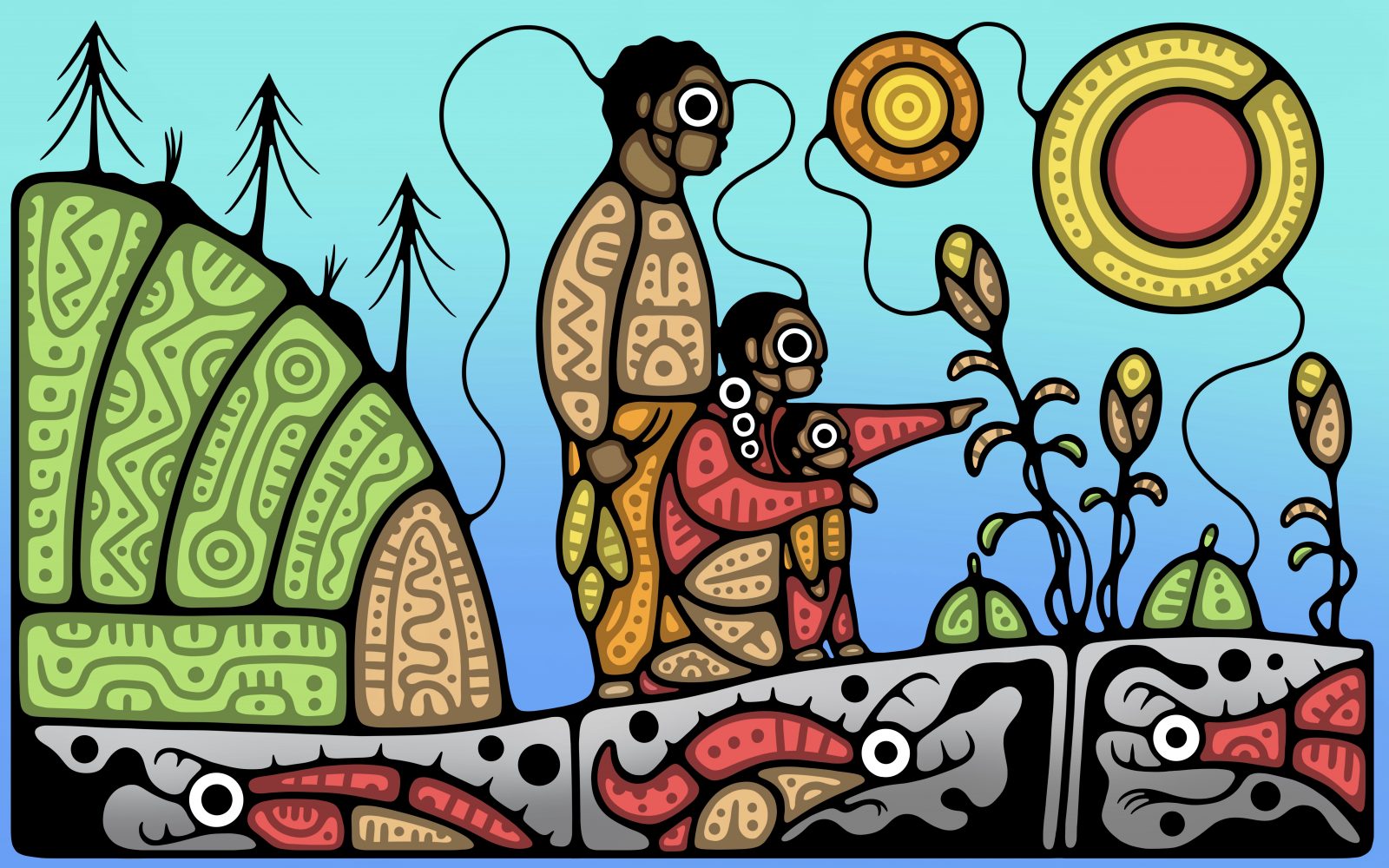To amplify and centre Indigenous voices at the cutting-edge of climate research and policy, the Canadian Climate Institute, in partnership with the Centre for Indigenous Environmental Resources, hosted a roundtable discussion on June 15 with the authors of three new case studies in our Indigenous Perspectives series. These case studies showcase the work of Indigenous researchers, Knowledge Holders, water protectors, and community members.
The discussion highlighted how Indigenous self-determination and knowledge are integral to designing effective regional, provincial, territorial, and national climate policies, exploring:
- The power of story and the medicine wheel as a learning pedagogy and how Indigenous ways of knowing and being should inform adaptation and policy decisions, and why policies that support anti-racism training for policy makers are a critical part of this process.
- The impact of B.C’s 2021 heat wave on Indigenous lands and waters and what we can learn from Indigenous leaders and communities as they respond to climate change through adaptation and mitigation. This research was done with support through the Preparing Our Home Program which empowers Indigenous youth to become emergency preparedness leaders in their communities.
- How policy approaches can help build—and rebuild—communities so they are resilient to the weather of today and tomorrow learning from Kanaka Bar Indian Band which was impacted by a number of extreme weather events in 2021, including the B.C. heat wave.
We also tackled questions of decolonization and unpack “Two-Eyed Seeing,” a concept where Indigenous and Western knowledge systems can complement one another’s strengths to help inform and create holistic policies for the benefit of all.
Watch the recording
Moderator: Shianne McKay, Senior Project Manager, Centre for Indigenous Environmental Resources
Opening remarks: Rick Smith, President, Canadian Climate Institute
Panelists
The Power of Acimowin (Storytelling) for Climate Change Adaptation and Policy
Sandra Lamouche is nehiyaw iskwew, a member of the Bigstone Cree Nation, her mother’s community. Her father is from Kapawe’no First Nation. Sandra is a wife, mother, award-winning educator, champion hoop dancer, public speaker, and writer. Read more
Hope flows from Action: Rebuilding with Resilient Foundations in B.C.’s Fraser Canyon Region
Patrick Michell is a Retired Chief, Kanaka Bar Indian Band, resident of Lytton, BC. Read more
Community is the solution: Experiences from the 2021 extreme heat emergency in urban, rural and remote B.C. First Nations
Dr. Emily Dicken, an Indigenous scholar and practitioner in Emergency Management, has over 15 years of experience and has held roles in organizations such as North Shore Emergency Management, First Nations Health Authority, and Emergency Management BC. Read more
Dr. Lilia Yumagulova is a Bashkir woman with degrees in engineering and risk analysis and a PhD in resilience planning. Read more
Sheri Lysons (Adams Lake Indian Band) is a daughter, a mother, and a grandmother. She is the Elders and Youth Council Coordinator, Shuswap Nation Tribal Council.
Casey Gabriel is a member of the Líl̓wat Nation. He is a member of the Volunteer Fire Department, a member of the Nation’s Emergency response team and a volunteer at large in his community. He sits on several boards and committees in different departments within the Nation. Casey is dedicated to Emergency Preparedness in his community.
Randy Carpenter is a member of the Heiltsuk First Nation and has the following experience: 15 years as a commercial fisherman, 20 years as a Guardian Watchman, four years as a casual Canadian Coast Guard, two years as an Emergency Coordinator.

